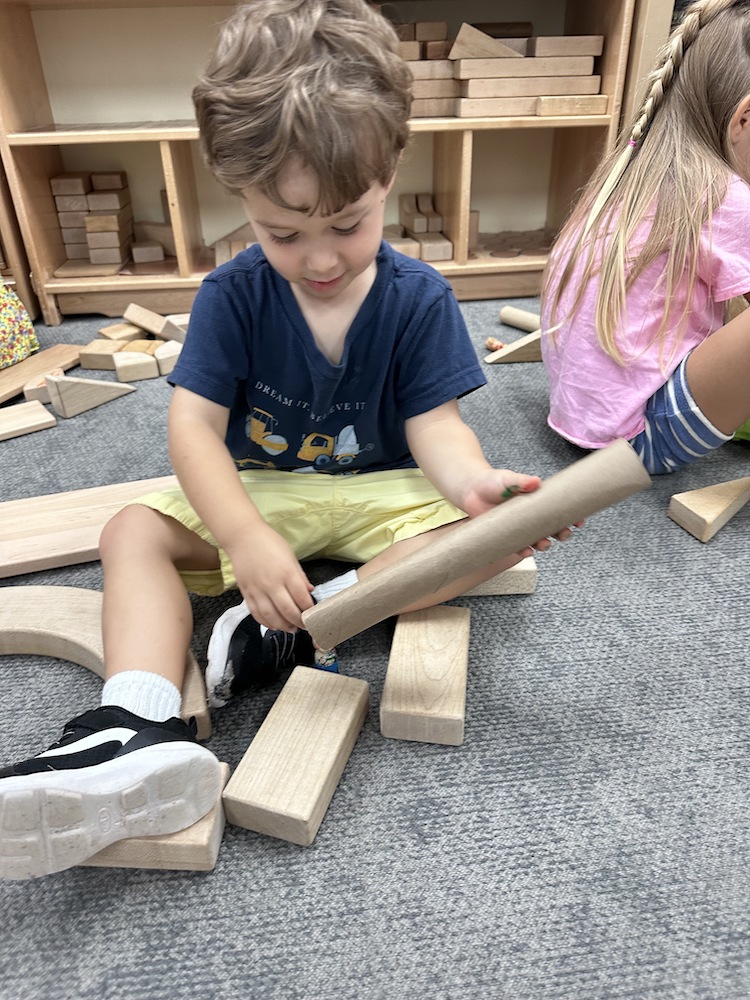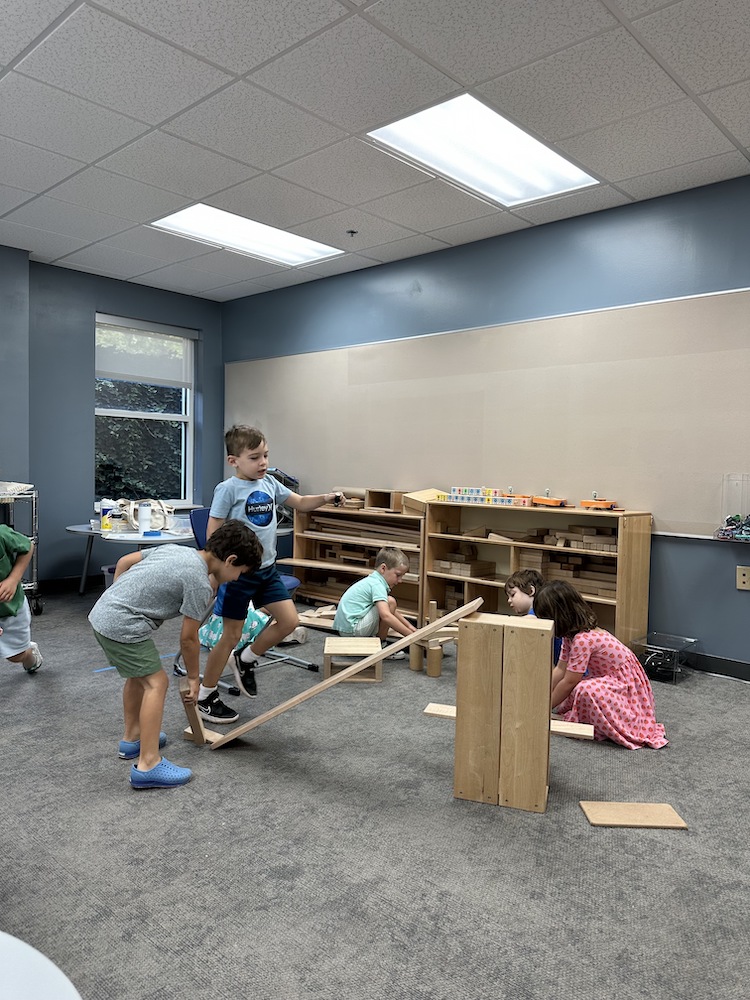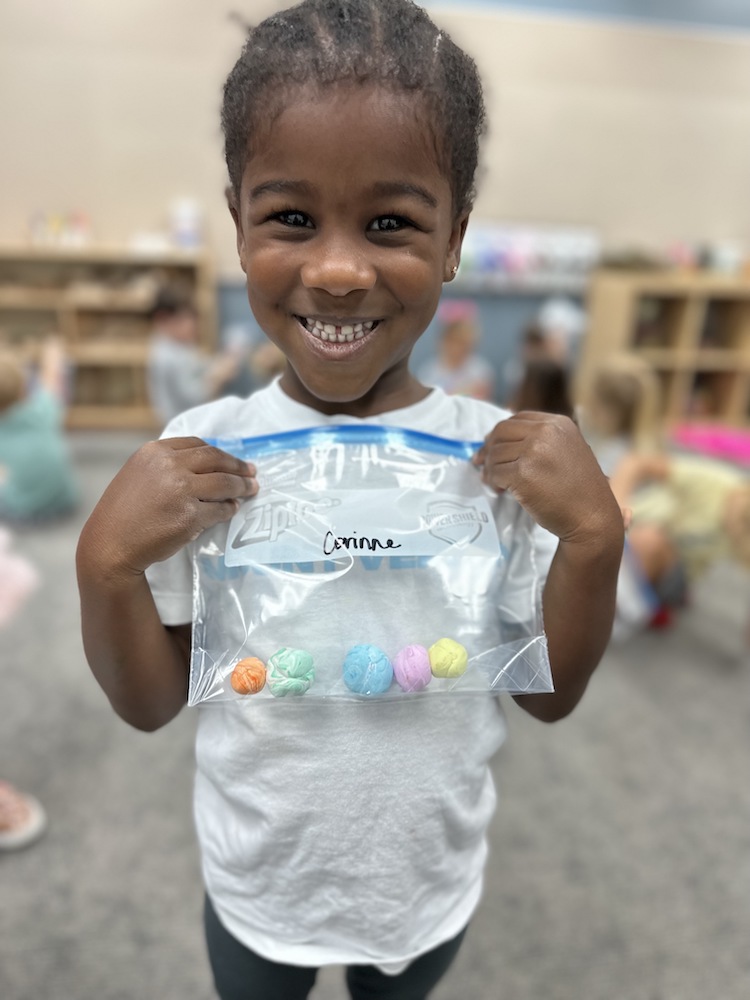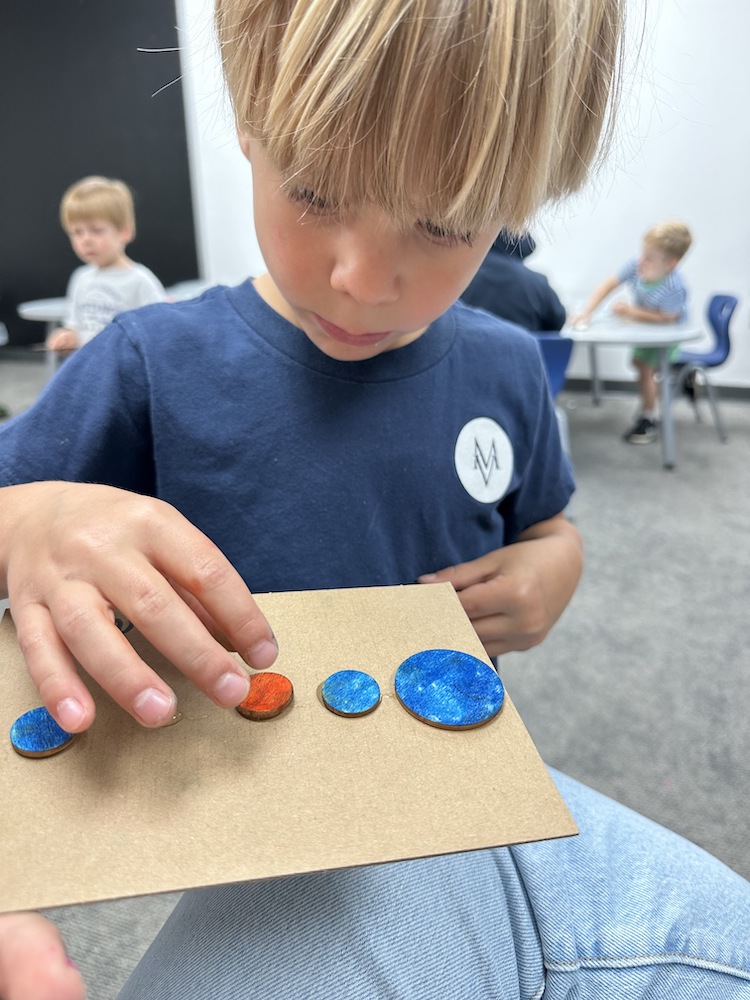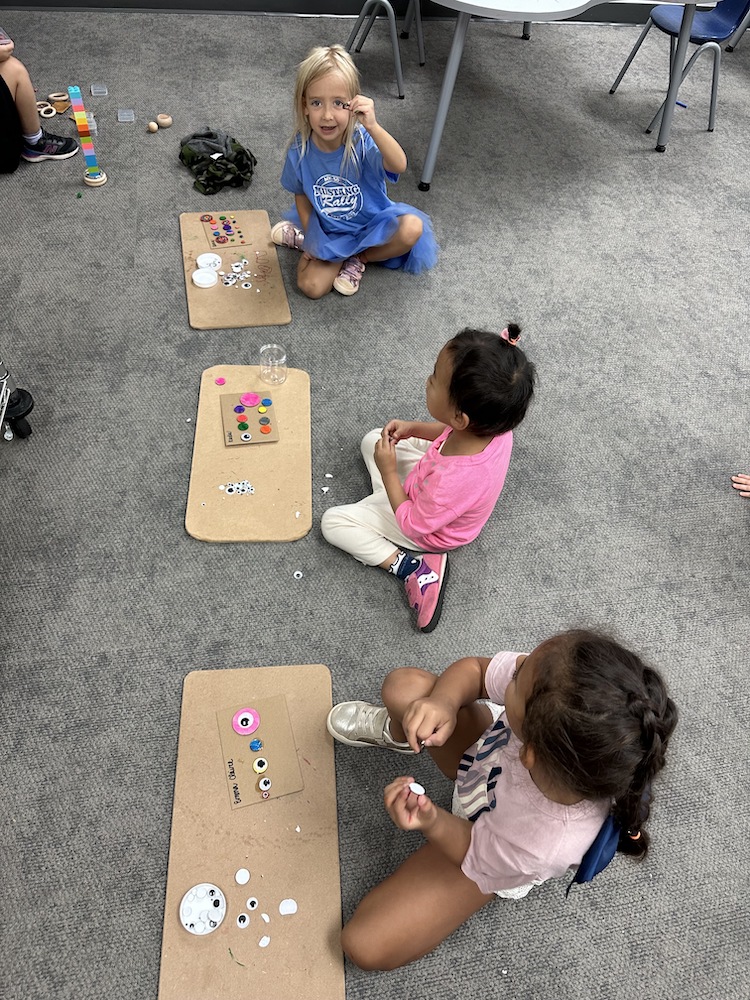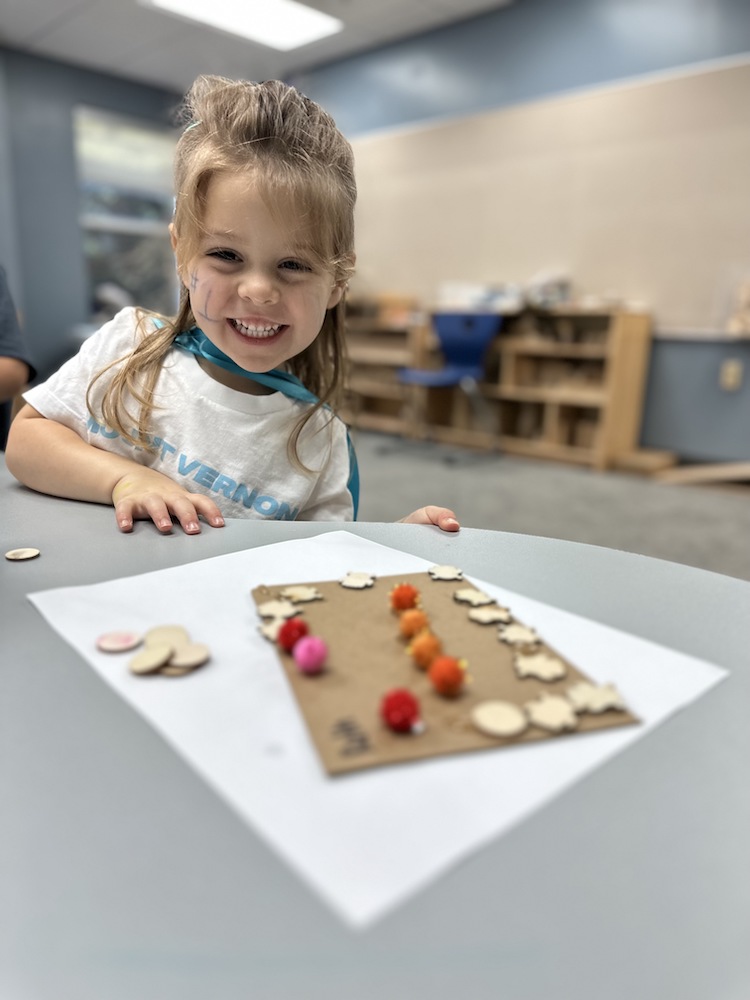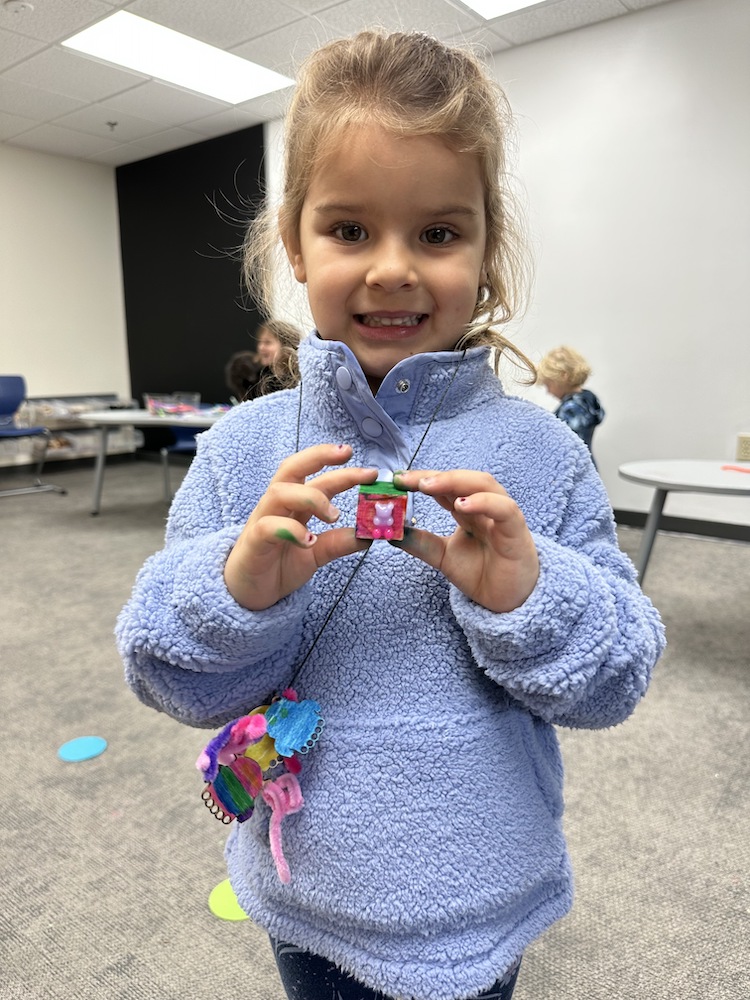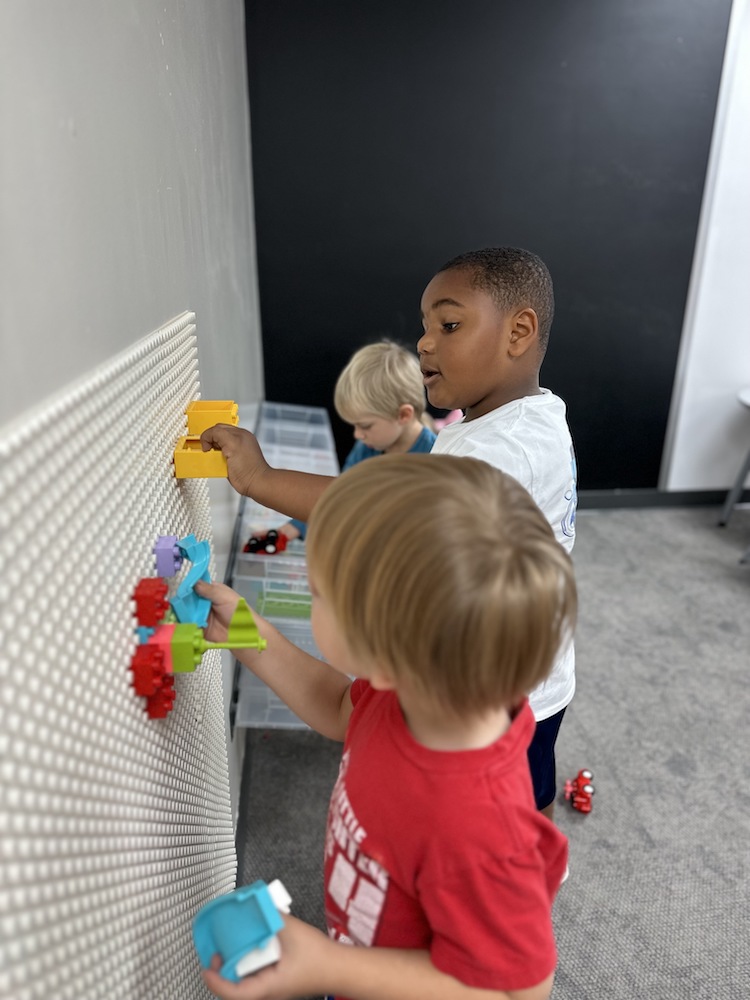Mount Vernon is a leader of innovation in education. With a commitment to nurturing the skills and attributes of its students, the School continues to push boundaries to create unique learning experiences. One such initiative is the Tinker Lab, an exciting addition to the Lower Campus, specially designed for the School’s youngest learners. In a conversation with Constanza Pizano, Maker, Design, and Engineering Instructor and Lower Campus IDEA Coordinator, we gain insights into the genesis, purpose, and potential of the Tinker Lab.
The Genesis of the Tinker Lab
The Tinker Lab emerged as an extension of the Maker, Design, and Engineering (MDE) program, a signature program at Mount Vernon. The goal was to introduce younger students to the concept of open-ended tinkering within a space with materials that are intentionally designed for young learners. According to Ms. Pizano, “Young children possess a natural inclination for tinkering, making it an ideal skill to capitalize on at an early age. The Tinker Lab aims to provide an environment that parallels what these students already do in their preschool classrooms but with access to different tools and the opportunity to engage in projects over extended periods. This early exposure not only helps children develop essential skills but also familiarizes them with the language and concepts they will encounter in Kindergarten and beyond.”
Building Skills and Attributes
The Tinker Lab plays a pivotal role in amping up the skill levels of young learners. It introduces them to important concepts like coloring, sanding, and the idea that not everything needs to be perfect. In this space, students can begin projects, engage with loose parts, and learn that not everything they create has to be a finished product. The Lab fosters a sense of exploration, enabling students to build, deconstruct, and experiment freely. This experience prepares them to approach challenges with resilience and adaptability, skills that will serve them well as they progress through their education.
Early Introduction to Making
The Tinker Lab is a testament to the School’s commitment to early Maker education. Previously starting in Kindergarten, the Maker program has now extended its reach to PK3, providing students with a formal weekly rotation. This consistency in the curriculum ensures that students have regular access to the Tinker Lab, promoting a culture of exploration, discovery, and creativity.
Creating the Space
The creation of the Tinker Lab was a collaborative effort, involving not only Ms. Pizano but also Nicole Martin, Executive Director of Learning and Innovation, and other Mount Vernon educators. The space is intentionally screen-free and devoid of digital fabrication tools commonly found in traditional maker spaces. Instead, it is focused on hands-on tinkering with loose parts, including a mix of natural and found materials. The term “loose parts” has become part of the MDE vernacular over the past serval years. This term refers to all the bits and pieces that we might use in our lives, including natural materials, pieces of machinery, containers, and fasteners of many types. Loose parts has deep roots in exceptional preschool programs and is a foundation for our K-12 experience. Additionally, the deliberate decision to exclude digital tools emphasizes the importance of tactile, open-ended exploration and creativity in this environment.
A Space for Play and Learning
The loose parts in the Tinker Lab are carefully selected to stimulate children’s imagination and creativity. Young learners often ascribe meaning to these random items, demonstrating their innate ability to engage in pretend play and open-ended activities. The Lab also promotes number sense, helping students develop skills like organizing, counting, and matching.
Building Grit and Resilience
The Tinker Lab is not just about creativity and skill development; it’s also about building grit and resilience. Students learn to persevere through challenges and develop a sense of ownership and pride in their creations. They learn that failure is an essential part of the learning process and that they have the agency to Be Brave to Try and Try Again is without judgment or pressure.
In the new strategic plan, The Impact Ready Project, we are called to think about how we might prepare the class of 2039 (and all the classes before them) for the future. This innovative space provides a foundation for early Maker education and equips children with skills and a mindset that will serve them well throughout their educational journey. As Mount Vernon continues to lead the way in innovative education, the Tinker Lab stands as a symbol of its dedication to building a brighter future for its students.
For parents who want to learn more about loose parts and how they might replicate this learning at home, here are some resources: Loose Parts Inspiring Young Children and Loose Parts Ideas Facebook Group.
